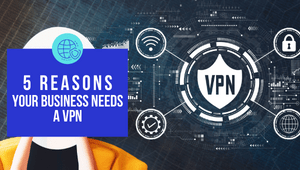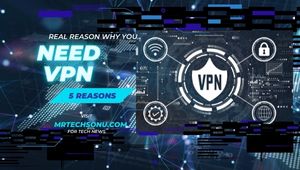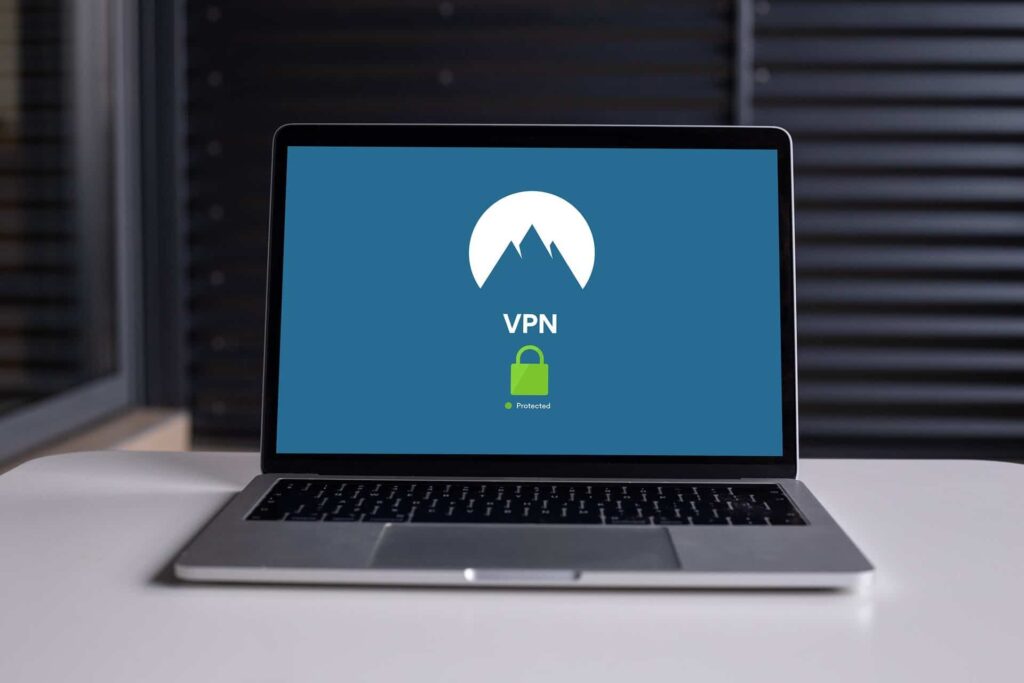There is a large group of people online who consistently promote the use of VPNs as a powerful tool, often exaggerating their benefits and capabilities.
All it takes is one click of a button, and you will be completely untraceable online. All of your internet security issues will go away in a matter of minutes, as if by magic.
The problem with such bold claims is that they are either exaggerated or completely incorrect. In this article, we will take a look at the real reasons to use a VPN. What they can do and what they cannot.

The Real Reasons You Will Use A VPN
Here are 5 reasons:
- Watch TV shows and movies, and access sites that are blocked in your region of the world.
- Get around government censorship
- Stop your ISP from what you do online
- Unblock sites at work
- Minimal protection on public WiFi
Notice a trend? The main reason people use VPNs is to unblock sites and services. We have not mentioned cybersecurity because that’s what many VPN promoters are exaggerating.
VPN encryption really isn’t a big deal. Most of the internet is encrypted with HTTPS and has been for years. That means that you are already safe on public WiFi and hackers can’t just snoop in on what you are doing online.
Furthermore, a VPN is a service that routes all your traffic through a shared server that’s 100% controlled by a company on the other side of the world. How is that more secure than your ISP, an established local company?
- VPN for unblocking content✔️
- VPN for privacy✔️
- VPN for cybersecurity 🤷
- Hide Your Browsing History
A virtual private network (VPN) is a method of hiding the page you are visiting from your Internet Service Provider (ISP). They can see every site you go to, even with HTTPS encryption.
They know you are on YouTube and they can also see youtube.com/the-name-of-the-video or amazon.com/the-item-you-looked at.

Countries all over the world, including the US are passing laws that let ISPs record and sell your browsing history.
A VPN will hide your browsing history from your ISP, government, school, or employer. Without a VPN, the internet packets leaving your computer are clearly addressed to the end destination site.
With a VPN the flow is like this:
Your computer -> ISP -> VPN -> end destination.
Everything on the left of the VPN is clueless about everything on the right of the VPN and vice versa.
This is good for unblocking sites, keeping your ISP from knowing what you do online, or if you are at a strict school you will not want the system admin or school authority to know which sites you visit.
Is A VPN Protection On Public WiFi?
Sometimes it protects, but if we are being honest, not really. The issue with this common fear-mongering tactic, that public WiFi is dangerous and anyone can spy on you is that it’s not 2006 anymore.
Most of the internet is already encrypted, and it has been for a long time. Every time you access a website you will see a padlock (left) in the URL search bar.
This padlock indicates that all of your activity has been secured with HTTPS. Before it leaves the computer, this encryption takes place.
There’s a small chance that someone has broken through HTTPS using a complex man-in-the-middle attack, but it’s a scarce chance. There is a greater chance that the VPN server is compromised.

HOWEVER!
If you are landing on an HTTP:// website, be alert. HTTPS websites are more secure than HTTP websites. Everything you submit to an HTTP website is visible text. Even if you are sharing the network at your local tea shop, library, or shared house, everyone on it can see all of your passwords and photos since they are all cleartext.
Torrenting and Cease and Desist Notices
It’s doubtful that your ISP cares about whether or not your torrent. ISPs in developing countries are frequently limiting torrenting traffic since it is clogging their networks.
In South Asia, this is considered standard practice, but ISPs with adequate bandwidth in competitive areas aren’t concerned.
They wouldn’t risk their customer base. If your ISP restricts your torrenting activity, simply relocate to a new one. The most serious risk while torrenting is that your IP address will be revealed on the tracker.
Several companies do this, obtain your IP address, reverse it, and submit you a DCMA notification via your ISP. Your ISP will need to compare the IP address to see whether it belongs to a customer; if so, he or she will be sent a Cease and Desist Notice.
You can use a VPN to protect your identity. There’s nothing linking back to you because the VPN’s IP address is used for downloading.
Let’s Wrap This Up
A virtual private network (VPN) will hide what you do online from your Internet Service Provider (ISP) and allow you to access material from other countries.
A VPN is also an excellent method to keep yourself safe while torrenting since rights holders are unable to detect your public IP address.
If rights owners are unable to view your public IP address, they will be unable to investigate or send you a threatening letter. Do you still have any unanswered queries? Why not try a VPN and experience it for yourself?
Frequently Asked Questions (FAQs)
Why do we need a VPN?
Using a VPN is necessary because it can protect you from hackers who may be trying to access your personal information when you are using public Wi-Fi. Also, note that a VPN can help you access content that may be blocked in your region, and it can help you maintain your privacy online. Overall, a VPN is a valuable tool for protecting your online security and privacy.
What happens if you don’t use a VPN?
If you don’t use a VPN, your internet connection will not be encrypted. This means that any data you send or receive can potentially be intercepted by third parties, such as hackers or government authorities for any legal purpose. This puts your personal information like browsing history, passwords, and financial data, at risk. You may not be able to access certain content that is blocked in your country or ISP, and websites and advertisers can track your online activity.